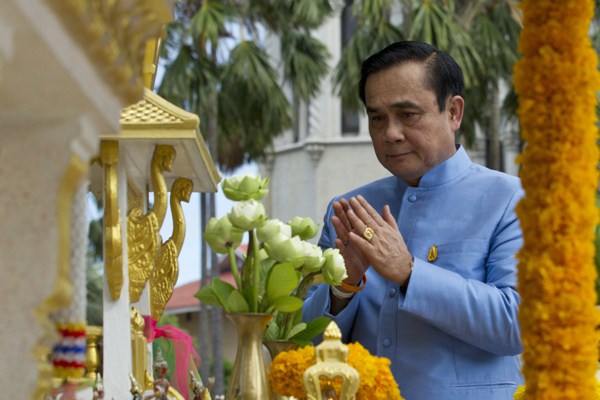Shortly after Thailand’s military took power in a coup in May and proclaimed the ruling junta the National Council for Peace and Order (NCPO), its leader, Gen. Prayuth Chan-ocha, said he wanted to “reform the political structure, economy and society.” At the time, the burning question was under what terms will this reform take place—and who gets to decide? Three months after the coup, the answer appears clear: Prayuth and the NCPO have supreme power over all political developments.
The interim constitution adopted by the junta on July 22 has produced a 200-member National Legislative Assembly, all of its members personally handpicked by Prayuth and other officials of the NCPO. Of the 200 assembly members, 106 are from the military; of these, 70 are active officers, and 36 are retired. The rest are civil servants, academics, business people and former non-elected senators. In an effort to roll back the influence of career politicians and amplify the role of unelected technocrats and bureaucrats who are both favored and trusted by Thailand’s elite, politicians from recent civilian governments are ineligible to sit in the national assembly. As if that weren’t enough, the temporary charter also gives the military the authority to intervene in matters believed to be “destructive to the peace and safety of the country” without the approval of a civilian government.
On Aug. 18, the national assembly passed a budget bill put together by the NCPO by a vote of 183-0, earmarking the largest portion of the budget—19.5 percent—for the Education Ministry. Prayuth has called for education reform as part of his plan to reshape the country and restore political stability, and the budget will increase education spending by 5.3 percent. Thailand’s education system is believed to be rife with corruption, unqualified teachers and an outdated curriculum that is out of sync with the future employment market and the demands of an integrated regional economy. In 2013 the World Economic Forum’s Global Competitive Report called Thailand’s educational standards the worst of the eight ASEAN nations it assessed.

